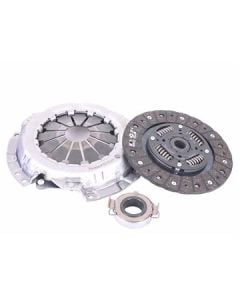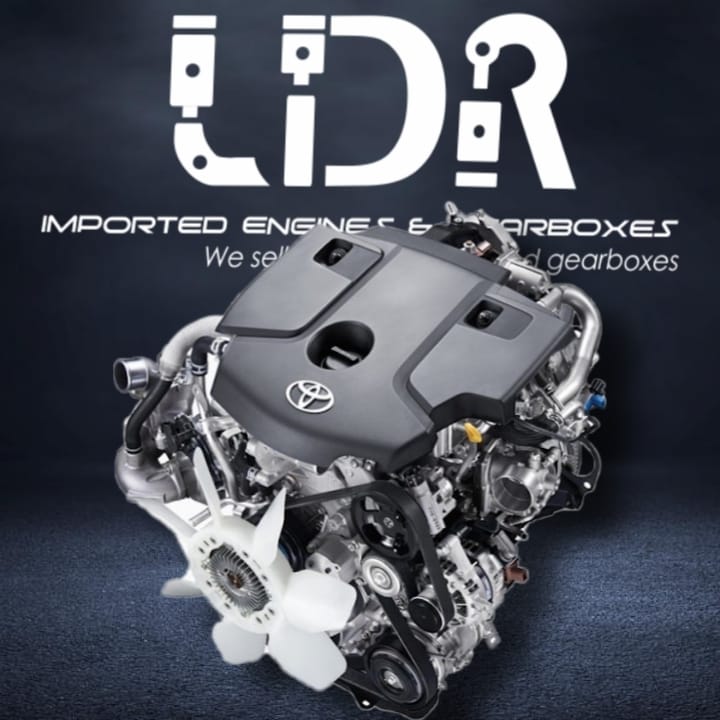Drive with Confidence: Toyota Tazz Engine for Sale, Genuine Components Only
Drive with Confidence: Toyota Tazz Engine for Sale, Genuine Components Only
Blog Article
Engine Purchasing Specialist Tips on Choosing the Right Engine for Your Details Requirements
Picking the right engine for your details needs includes a complicated interplay of factors that go beyond mere horsepower numbers. From power outcome to sustain effectiveness, the decision-making process can be intimidating. Comprehending the nuances of engine kinds, sizes, and their compatibility with your automobile is critical. There are expert tips that can help navigate this terrain with self-confidence. By diving into the complexities of power versus effectiveness, assessing fuel ratings, and budgeting for lasting costs, one can truly maximize their engine option.
Power Vs. Performance: Discovering the Equilibrium

When choosing an engine, it is important to strike a balance between power and efficiency to satisfy your particular needs properly. Power describes the engine's ability to generate energy for propulsion, figuring out elements like acceleration, lugging capability, and overall efficiency (Toyota Tazz Engine For Sale). On the various other hand, effectiveness connects to exactly how well the engine utilizes gas to produce power, impacting factors such as gas economic climate and environmental kindness
Achieving the appropriate equilibrium in between power and efficiency is crucial since an engine that is too powerful might eat too much fuel, causing higher operating prices and unnecessary stress on the atmosphere. Conversely, an engine that focuses on efficiency over power may cause slow efficiency, particularly in requiring circumstances like lugging heavy loads or driving uphill.
To make an informed choice, take into consideration factors such as your typical driving conditions, the intended usage of the lorry, and your individual choices. By reviewing your demands and top priorities, you can pick an engine that strikes the perfect equilibrium between power and efficiency, making sure optimal efficiency while lessening ecological effect and operating expense.
Recognizing Engine Size and Kind

Furthermore, engine type plays a critical duty in determining the efficiency attributes of an engine. Common engine kinds consist of inline engines, V engines, and rotary engines, each with its special advantages and drawbacks. The engine type influences factors such as the engine's dimension, weight circulation, and power distribution. Recognizing the interaction between engine size and kind is vital in picking an engine that lines up with your details needs and concerns, whether it be power, effectiveness, or an equilibrium of both.
Consider Your Automobile's Requirements
If you are looking for an engine for a heavy-duty truck that will be made use of for towing, you will need a powerful engine with high torque capabilities. On the other hand, if you are choosing an engine for a portable vehicle primarily used for city commuting, gas effectiveness might be a more important element to take into consideration.

Examining Fuel Efficiency Ratings
Analyzing gas performance ratings is an important facet of picking the best engine for your lorry, ensuring price financial savings and environmental sustainability. Gas effectiveness scores, generally measured in miles per gallon (MPG) for fuel engines or kilowatt-hours per 100 miles (kWh/100 miles) for electrical engines, suggest just how far an automobile can Check This Out take a trip on a details quantity of fuel or electrical energy. Higher MPG or reduced kWh/100 miles worths signify a lot more effective engines, converting to reduced fuel expenses and lower carbon discharges.
When assessing gas performance scores, consider your driving habits and needs. An extremely fuel-efficient engine can result in significant financial savings over Go Here time if you commute long ranges daily. Additionally, compare various engine choices within the same lorry course to identify one of the most cost-effective option. Elements such as engine dimension, weight, the rules of aerodynamics, and hybrid or electric abilities can all affect gas performance.
Budgeting for Long-Term Expenses
Tactically preparing for long-lasting expenses is necessary when choosing an engine, guaranteeing monetary sustainability over the automobile's life-span. While the initial purchase price of an engine is a considerable element, it is important to think about the long-lasting costs related to upkeep, fixings, and gas usage. Choosing an extra fuel-efficient engine might have a greater upfront cost but can lead to substantial savings in time. Routine maintenance, such as oil modifications, filter replacements, and tune-ups, is important to keep the engine running smoothly and successfully, reducing the danger of expensive repair work down the line.
Moreover, investigating the accessibility and expense of replacement parts for the picked engine is vital in budget planning. Engines with readily offered and economical parts can dramatically influence lasting upkeep expenses. In addition, considering the engine's resilience and expected life expectancy can help prevent unforeseen substitute expenses in the future. By thoroughly budgeting for these lasting expenses and factoring them into the decision-making process, individuals can choose an engine that not only meets their prompt requirements however additionally continues to be cost-efficient throughout its life see this site expectancy.
Conclusion
Finally, choosing the appropriate engine for your certain demands requires balancing power and effectiveness, recognizing engine size and type, considering your automobile's demands, assessing gas performance scores, and budgeting for long-term costs. By meticulously thinking about these aspects, you can ensure that you choose an engine that satisfies your requirements and supplies optimal efficiency for your automobile.
To even more refine the choice process of an engine that strikes the optimum balance in between power and performance, it is crucial to dive into the ins and outs of comprehending engine size and type. Engine dimension refers to the total quantity of air and fuel that can be pushed with the engine cyndrical tubes. Usual engine kinds consist of inline engines, V engines, and rotary engines, each with its unique advantages and drawbacks. Understanding the interplay in between engine size and kind is important in picking an engine that aligns with your particular needs and top priorities, whether it be power, performance, or an equilibrium of both.
Gas efficiency scores, typically measured in miles per gallon (MPG) for gasoline engines or kilowatt-hours per 100 miles (kWh/100 miles) for electric engines, indicate exactly how far a lorry can take a trip on a particular quantity of fuel or electrical power.
Report this page